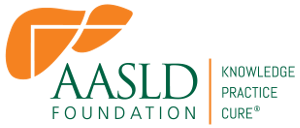Defining Phenotypes of Alcohol-Related Liver Disease

Grantee: Allison Kwong, MD
Institution: Stanford University
Grant Program: Clinical, Translational, and Outcomes Research Award in Liver Diseases
Project Term: July 2020 - June 2022 (Completed)
Area of Focus: Alcohol-Associated Liver Disease
Project Description:
My research project focuses on outcomes of patients with alcohol use disorder and advanced liver disease due to alcohol use. Alcohol-related liver disease is increasingly prevalent and costly, yet few treatments exist other than abstinence from alcohol. At many transplant centers in the United States, patients with advanced alcohol-related liver disease and fewer than 6 months of sobriety can now access liver transplantation. As a result, there is urgency to identify those who are at high risk for death and thus greatest need for liver transplant — and perhaps just as importantly, predict those who can recover without liver transplant. I will establish a registry and biorepository at Stanford, enrolling patients admitted to the hospital with acute hepatic decompensation related to alcohol-related liver disease.
We will follow patients in our outpatient clinics for 2 years, with longitudinal measurements of alcohol use, nutrition, liver fibrosis, and frailty. We will identify clinical features that predict long-term outcome in this population, taking a comprehensive approach and considering the impact of both biologic and psychosocial influences on clinical outcomes. The resources generated from this proposal will help to improve prognostication and target interventions for this understudied population. Although patients with alcohol-related liver disease are not often seen until they have advanced disease, there is a possibility for hepatic recovery. It remains clinically challenging to predict a patient's trajectory and eventual outcome, whether death or hepatic recovery. Recognition of distinct phenotypes and predictors of outcome in alcohol-related liver disease will allow us to better determine prognosis, individualize therapy, and guide decision-making regarding liver transplantation. This unique prospective cohort will lead to important insights into the disease patterns and trajectories of alcohol-related liver disease and advance our understanding and management of this prevalent and life-threatening liver disease.
Project Outcomes Summary:
This award has contributed to our understanding of advanced liver disease due to alcohol use and the expected disease course. Alcohol-related liver disease is an increasing public health burden and is now the leading indication for liver transplant in the United States. Even with abstinence from alcohol, the liver damage may be very serious. Liver transplant may be a life-saving treatment option for select patients, whereas others may be able to recover without transplant, avoiding the surgical risks and need for lifelong medication. This study helps us to better predict what may happen, and specifically which patients may recover in the long-term without needing liver transplant.
The HeRALD study (Health-related Outcomes in Alcohol-associated Liver Disease) is recruiting patients at Stanford University with advanced liver disease due to alcohol use to participate in long-term follow-up. We have enrolled 85 patients and obtain clinical and laboratory data at each follow-up visit, as well as liver stiffness, quality of life, and frailty measurements to understand the evolution and ongoing impact of liver disease after the initial hospitalization. We have also stored blood and urine samples for future studies. The information gained will help us to better counsel patients about their potential recovery versus need for transplant and will help the transplant system use organs for those who will benefit most.
Selected Publications:
Lim N, Kwong AJ, Jafri SM, et al.
Am J Gastroenterol. 2022;117(9):1530-1535. doi:10.14309/ajg.0000000000001863
Singal AK, Kwo P, Kwong A, et al.
Hepatology. 2022;75(4):1026-1037. doi:10.1002/hep.32143
Ge J, Kim WR, Lai JC, Kwong AJ.
J Hepatol. 2022;76(6):1318-1329. doi:10.1016/j.jhep.2022.03.003
Subsequent Funding:
NIH/NIAAA
Defining Phenotypes of Alcohol-Associated Liver Disease with Acute Hepatic Decompensation
Role: PI
Personal Impact:
“The award has heightened visibility for my research and career development and has helped to jumpstart my research program, secure additional funding, and establish interdisciplinary research collaborations. I have partnered with Stanford investigators in neuropsychiatry to jointly study the neurologic effects of alcohol use disorder and alcohol associated-liver disease. I also recently established a collaboration with RiaHealth, a telehealth provider specializing in the treatment of alcohol use disorder, to successfully compete for a NIAAA R44 - Small Business Innovation Research Grant. As a result of this award, I have become more widely recognized for my work and expertise in alcohol associated liver disease and liver transplantation. I now serve as an Associate Editor for the American Journal of Transplantation, in addition to my ongoing commitments to the Editorial Board of Liver Transplantation, the board of directors of the Northern California Society for Clinical Gastroenterology, and the steering committee for the AASLD Public Health and Health Care Delivery Special Interest Group. I continue to serve on the OPTN Liver and Intestine Committee, which develops organ allocation policy for liver transplantation in United States. In addition, I have been invited to speak at the upcoming AASLD Emerging Topic Conference on current scores and biomarkers in alcohol-associated liver disease.
I owe much of this progress and success in the past several years to the AASLD Foundation CTORA. This grant provided much-needed protected time and resources to be successful as an early career investigator and solidified my commitment to a career as an academic hepatologist.”
About the Grantee:
Allison Kwong, MD is a transplant hepatologist and early career investigator at Stanford University. She received her medical degree at Mount Sinai School of Medicine and completed fellowships in gastroenterology at Stanford University and advanced/transplant hepatology at University of California, San Francisco. Her clinical and research interests include cirrhosis, portal hypertension, hepatocellular carcinoma, liver allocation, and outcomes before and after liver transplantation, and her research is supported by the AASLD Foundation Clinical, Translational, and Outcomes Research Award and a NIAAA K23 Mentored Career Development Award.
Grantee ORCID Record:
More Information*:
AASLD’s Patient Guidelines for Alcohol-Associated Liver Disease.
NIAAA Rethinking Drinking: Alcohol and Your Health
NIAAA Alcohol Treatment Navigator
NIAAA Alcohol’s Effects on Health
*Resources are provided for information purposes only and inclusion does not imply AASLD Foundation endorsement or recommendation.
Page last updated January 2023

